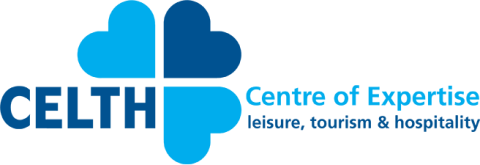- Home
- Research
- Professorships
- tourism impacts on society
- measuring resident benefits
Measuring resident benefits - exploration of indicators and methods
Individual or collective Conscious or unconscious Factual or perceived
What was the goal of this research?
Exploration of Indicators and Methods, initiated by CELTH, was developed in collaboration with academic institutions and destination marketing organizations (including Breda University of Applied Sciences, HZ University of Applied Sciences, Hotelschool The Hague, NBTC, and Eilandmarketing Schouwen-Duiveland). It aimed to provide stakeholders, such as municipalities and destination marketing organizations, with a practical guide on how to better understand and to select the most appropriate measurement approach to uncover the perceived value residents derive from tourism. The guide on measuring resident benefits (in Dutch Wegwijzer voor het meten van bewonersprofijt) introduces not only traditional methods but also more innovative and creative methods. It evaluates each method based on relevance, reliability, cost, complexity, speed, privacy, and potential for real-time monitoring.
What method was employed?
The Wegwijzer voor het meten van bewonersprofijt brings together insights from literature, approximately 40 expert interviews, real-world case studies and experiments applied in the destination Schouwen-Duiveland to provide a structured overview of methods for measuring resident benefit.
What findings did we uncover?
Many destinations often still rely on traditional methods - surveys, interviews, economic stats - to measure tourism’s impact. While valuable, these tools can miss the nuanced, personal, or hidden ways tourism enhances people’s lives. An effective approach to measuring resident benefit must be (1) multi-dimensional, (2) context-specific, and (3) flexible to local realities, as well as (4) employ a mixed-method approach. Employing creative research methods - using art, photo-elicitation and participatory mapping - offer powerful ways to access emotional, experiential, and often unspoken dimensions of how residents perceive their environment. It can enable participants to express and visualize abstract ideas like pride and connection beyond the limits of language, making it transformative and holistic tools. These methods foster deeper engagement and dialogue and offer valuable complements to traditional research by capturing the rich, lived realities behind the data.
What is the timeline of this project?
December 2023 - April 2025
Who is our funding partner?

Who are our main collaborating partners?
HZ Coastal Tourism Knowledge Center; Netherlands Bureau for Tourism and Congresses; Hotel School The Hague; Schouwen-Duiveland Island Marketing Foundation
Who is the project team?
Ruurt van der Wel, Helma Wegdam
Want to read more?
Interested in other publications?
BUas uses Pure for all research publications; the up-to-date overview of all BUas knowledge output.